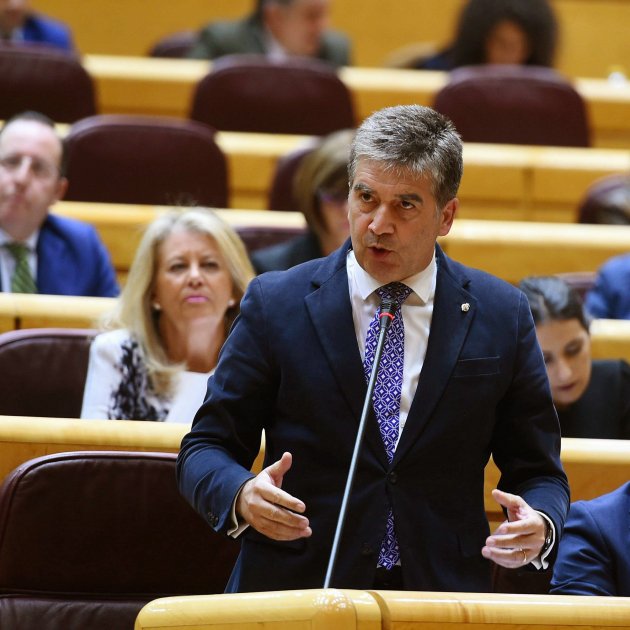The pact between PSOE and PP for the renovation of the General Council of the Judiciary (CGPJ) and the Supreme Court has sparked a wave of criticism, and not only from the political parties which were left on the margins and judges' associations. It's also produced an amount of disquiet within the PP itself. In the middle of this, PP's spokesperson in the Senate, Ignacio Cosidó, sent a WhatsApp message to his colleagues in the upper chamber defending the agreement.
Cosidó, according to the newspaper El Español, describes the pact as encouraging: "it's been a stupendous move," he wrote. He noted that, with the nomination of Manuel Marchena as chair of the CGPJ and the Supreme Court, they control "from behind the scenes" both the Supreme Court's second chamber (which will hear the trial over last year's Catalan referendum) and chamber 61 (which controls the process for making political parties illegal). "We were risking the future renovations of two thirds of the Supreme Court and hundreds of nominations in the judiciary, vital for the PP and the future of Spain".
The spokesperson notes that the previous agreement gave the PP 10 seats on the CGPJ with PSOE having 10 plus the chair. After negotiations, PP have gained the chair and, despite losing a chair and giving PSOE a majority, the chair's vote gives a numerical draw.
Better on the Council
The extensive argument he gives to justify the pact also looks to calm the waters over the fact that one of PSOE's nominations is judge José Ricardo de Prada who tried the Gürtel case, which found the PP to have benefited from corruption, a sentence that led to the motion of no-confidence against Mariano Rajoy. Cosidó notes they had agreed to not veto any names and says that "in any case, taking De Prada from the National Audience is good. Better on the CGPJ than handing down sentences against the PP".
He reminds his 146 fellow senators that "this 50% share for the next few years is more than would correspond to us by number of seats [in the Senate] or if other political parties had entered".
The messages
The prior agreement meant (10 PSOE + 10 PP + PSOE chair (Supreme Court magistrate) = 21) and no right to veto the candidates proposed by the other side.
= (12 judges + 8 jurists of recognised prestige (JRP) + 1 chair = 21
= (3 judges PP Congress + 3 judges PSOE Congress + 3 judges PP Senate + 3 judges PSOE Senate) + (2 JRP PP Congress + 2 JRP PSOE Congress + 2 JRP PP Senate + 2 JRP PSOE Senate) + 1 chair = 21
Said another way: PP would have had 10 seats, and PSOE 10 seats + the chair = 11.
With the negotiation, PP has 9 seats + the chair = 10, and PSOE has 11 seats.
In other words, we obtain the same thing numerically, but we get an exceptional chair, who was vetoed by Rubalcaba in 2013, and not now. A great chair with a huge amount of experience in the Supreme Court, who will lend prestige to the Supreme Court and the CGPJ, which they need, and with an ability for leadership and 'auctoritas' so that the votes aren't 11-10, but close to 21-0. And moreover controlling the second chamber from behind the scenes and chairing chamber 61. It's been a stupendous move which I've experienced from the front line. We were risking the future renovations of 2/3 of the Supreme Court and hundreds of nominations in the judiciary, vital for the PP and for the future of Spain.
The only thing which could sound bad are the nominations of some of PSOE's choices, but the prior agreement involved not vetoing names, to not make the renovation endless, having a deadline of 4th December. In any case, removing De Prada from the National Audience is good. Better on the CGPJ than handing down sentences against the PP.
Another important consideration is that this 50% share for the next few years is more than would correspond to us by number of seats or if other political parties had entered.
In short, an encouraging result. What I'm reading these days is ignorance bordering on criminal. If anyone wants more details, I'm delighted.
